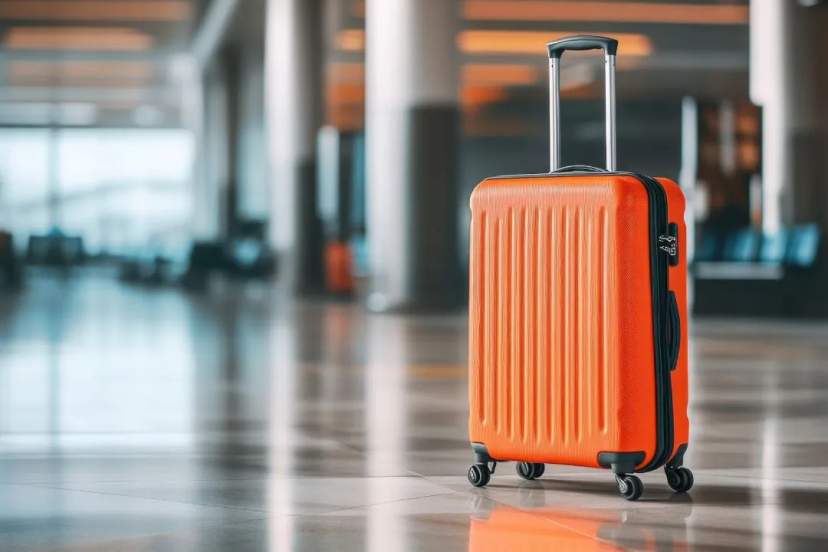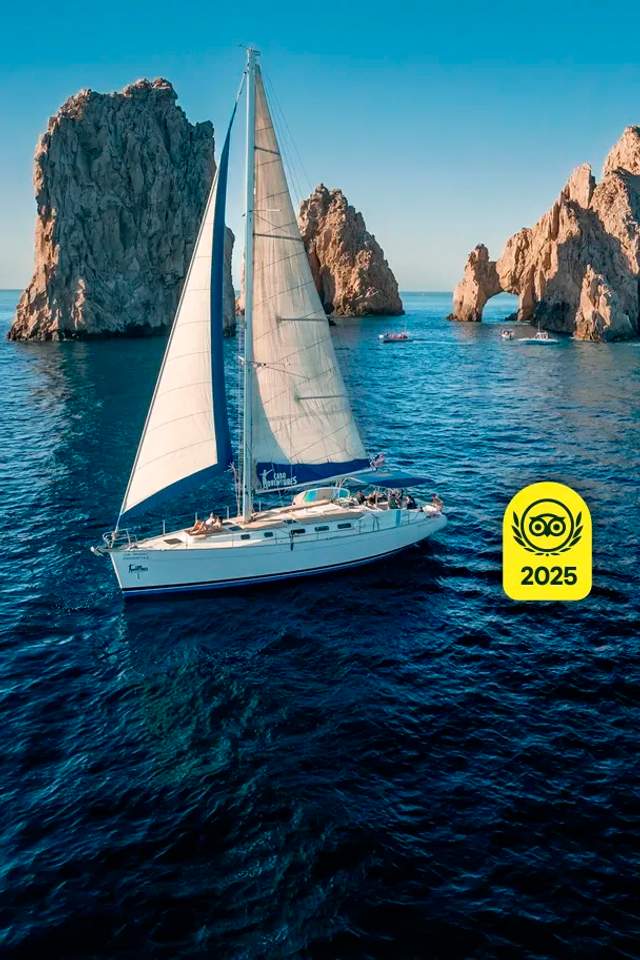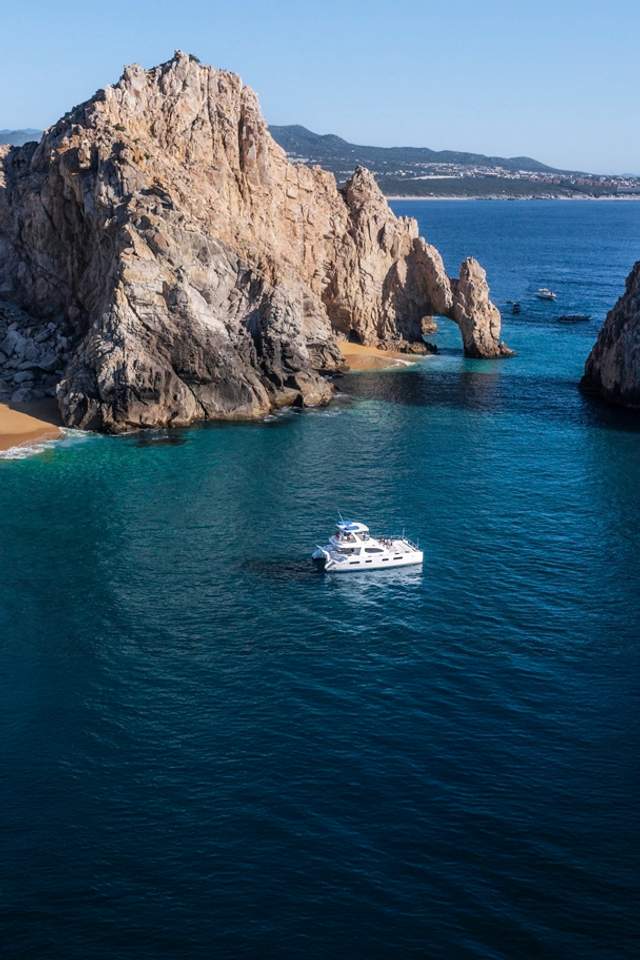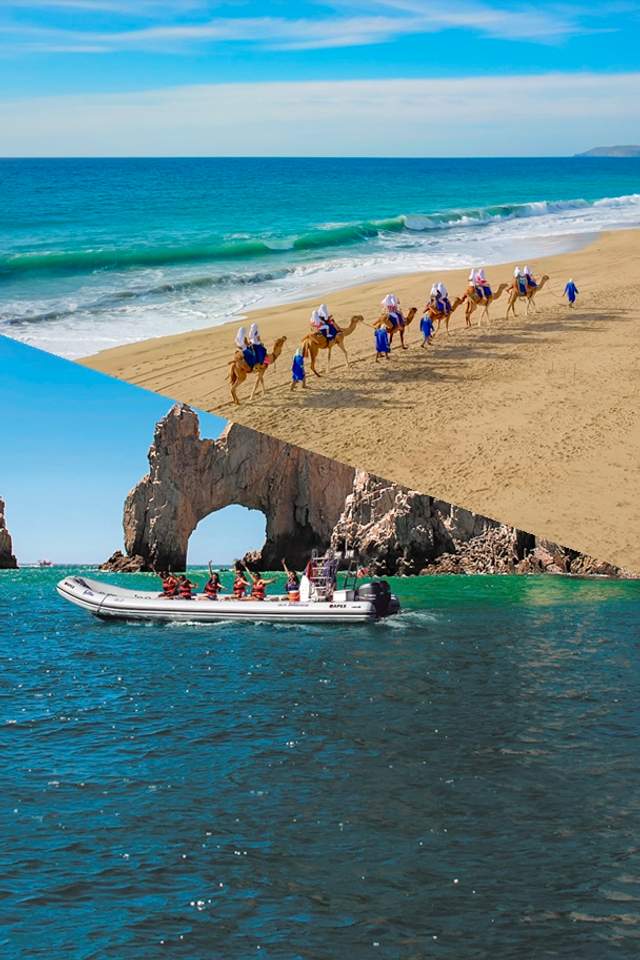Yes—you’ll need a valid passport book if you’re flying into Los Cabos International Airport. Both U.S. and Canadian citizens must present this documentation upon entry. The U.S. State Department is clear: “U.S. citizens must present a valid U.S. passport book at the time of entry to Mexico,” and Canadian guidelines are the same.
As you get ready for your trip to Cabo San Lucas, make sure you’re up to date on passport requirements. This quick guide breaks down exactly what you need to know, so you can travel with peace of mind and focus on enjoying the beaches, sunshine, and adventure that await.
Passport & Entry Requirements by Air, Land, and Sea
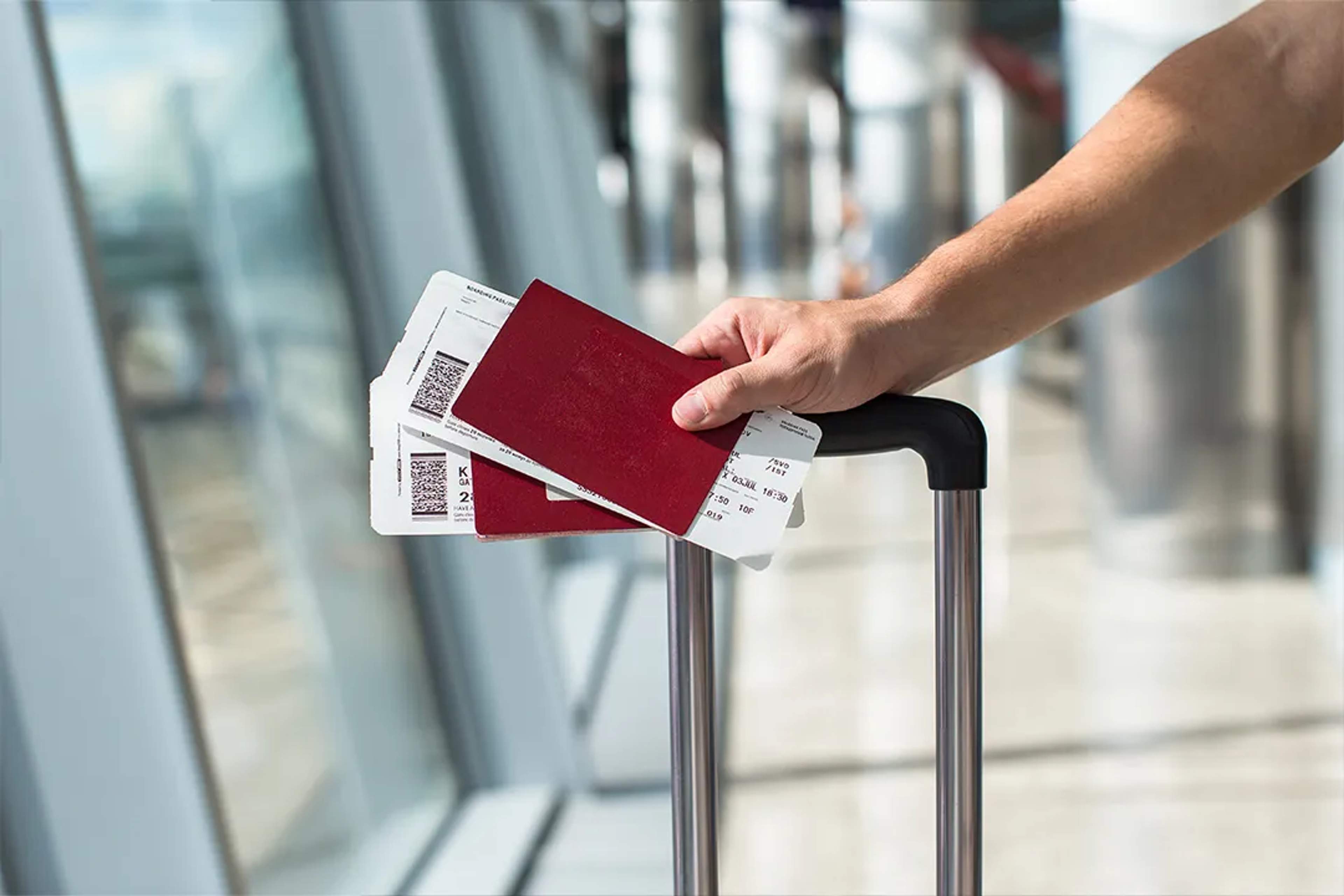
Flying into Los Cabos means immigration wants to see a valid passport book; passport cards don't work for air travel. Mexican law only requires that your passport be current on arrival, but some airlines often demand six months' validity, so check that expiration date before you pack your fins.
Driving south from the border gives U.S. citizens one extra option: the passport card works fine, while Canadians still need the full book. Once you cross, you'll need an FMM tourist permit to continue beyond the frontier zone, even if you're planning to chase waves all the way down to Cabo.
Arriving by sea depends entirely on your cruise itinerary. Open-loop cruises (different start and end ports) require a passport book. Closed-loop voyages from a U.S. port let you use a birth certificate plus government photo ID, but that passport becomes your only ticket home if you need to fly out unexpectedly.
Mexico grants visa-free stays up to 180 days, and immigration officers now ask to see a return or onward ticket. Whatever route brings you here, carry a passport book; it keeps every option open when ocean plans change.
Accepted Alternatives & Their Limits
While a passport book offers the most flexibility for Cabo travel, there are limited alternatives with significant restrictions. Before relying on these options, understand their limitations:
- U.S. Passport Card: Works only for U.S. land crossings and closed-loop cruises. Becomes invalid if you need to board a plane.
- Enhanced Driver's Licenses: Available only from Michigan, Minnesota, New York, Vermont, and Washington. Like passport cards, they're valid for land and sea travel only—never for air travel.
- Trusted-Traveler Cards: Programs like NEXUS, SENTRI, or Global Entry will expedite your passage through select border lanes but won't satisfy requirements at airport security or cruise terminals.
- FAST Card: Serves an extremely limited purpose—restricted exclusively to commercial truck drivers transporting freight across the border.
- Emergency Limitations: All alternative documents become useless if you need to fly home unexpectedly. U.S. Customs and Border Protection explicitly requires a valid passport book for all air travelers re-entering the country.
- Canadian Options: Even more limited for Canadians—Ottawa doesn't issue passport cards, and NEXUS won't help at Mexican airports.
The passport book remains the only universal travel document that works by land, sea, and air. It's your most reliable identification for handling unexpected situations like cancelled cruises, medical evacuations, or last-minute itinerary changes without experiencing costly delays.
Traveling with Children & Minors
Every child flying to Cabo needs their own passport book, from newborns to teenagers—no exceptions for air travel.
Land crossings and closed-loop cruises have different rules. Children under 16 can enter with an original or certified birth certificate, while teens 16–18 need that certificate plus government photo ID. Cruise lines still recommend carrying passports since emergency flights home require them.

Traveling with one parent or as a guardian requires extra documentation. The Canadian government strongly recommends bringing a consent letter from the non-traveling parent; while notarization is suggested to add credibility, it is not strictly required. Bring custody papers, adoption documents, or death certificates that explain guardianship. Immigration officers at SJD may request proof, so it is advisable to have these documents ready.
Each minor needs an FMM tourist card when entering Mexico, but it does not need to be signed by a parent or guardian unless the minor is traveling without their parents or guardians. Keep copies of all documents separate from originals; you'll thank yourself later.
FMM Tourist Card & Length-of-Stay Rules
Most foreign visitors receive a Forma Migratoria Múltiple, or FMM, when entering Mexico, which allows for stays of up to 180 days, though exceptions apply and the permitted duration may vary. Airlines typically include the fee in your ticket price, but if you're driving across the border, you'll get the permit at an INM booth or print it beforehand through the INM portal.
On flights, crew members distribute paper forms. At Los Cabos International, digital kiosks help process traveler information, but a human immigration officer still stamps your passport. Keep your copy safe; immigration takes the top half, and you keep the stamped bottom portion.
As of now, there is no official confirmation from Mexican authorities about a requirement for proof of onward or return tickets. Mexico is transitioning from paper to digital forms, so procedures vary by entry point. Confirm current requirements with your airline 72 hours before flying and keep a printed copy of any online application with you.
Special Tips for Canadian Travelers
Your passport checklist for Cabo mirrors the American one: a valid Canadian passport book and your FMM. Mexican law requires your passport to be current on arrival, but airlines sometimes ask for more; Air Canada and WestJet agents may want proof your document covers your entire stay plus a confirmed return ticket, following Mexico's new onward-ticket rule. Have those confirmations ready at check-in.
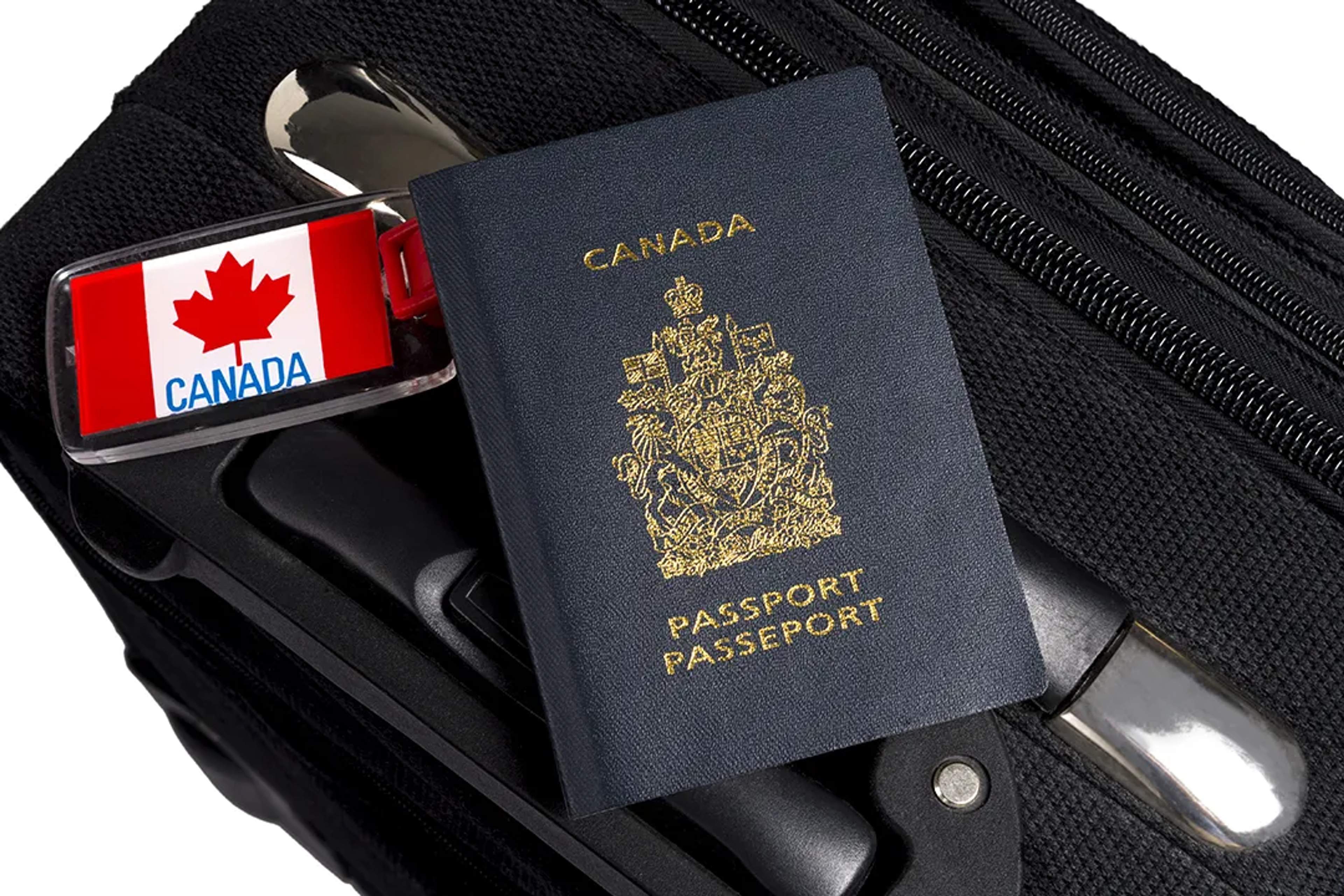
Leave the NEXUS card at home. It works at land crossings, but Mexican airports will send you to the regular passport queue anyway. Ottawa recommends comprehensive travel insurance, and medical evacuations without coverage can cost more than your entire trip.
Traveling with kids requires extra paperwork. Border officers strongly prefer a notarized consent letter from any non-traveling parent. Quebec families can present French-language copies, but include an English or Spanish translation to speed processing. Keep your passport valid through departure, pack those letters, and you'll move through immigration smoothly.
Protecting Your Documents & What to Do If They're Lost
Keep your passport and FMM secure. In your hotel room, use the safe. When out, carry originals in an RFID-blocking pouch under a zipped layer close to your body. Bring only what you need for the day and keep a color photocopy in a separate bag. Before traveling, scan every document to an encrypted cloud storage so you can access them from any device.
If your documents are lost or stolen, follow these essential steps:
- File a police report immediately—you'll need this receipt for all replacements
- Take the police report to the U.S. Consular Agency in Los Cabos (or Canadian Embassy for Canadians) for an emergency passport, typically issued within 24 hours
- Bring your new passport to the INM desk at SJD airport for a replacement FMM, which is issued the same day
Travel insurance that covers document loss will reimburse these fees plus transportation costs. Getting replacement documents in Cabo is straightforward when you know the process, but prevention saves time you'd rather spend on the water.
Keep Your Passport Safe as You Enjoy Your Stay
Nothing ruins a perfect day on the water quite like worrying about your documents. That passport book isn't just your ticket home; it's your key to every adventure, from boarding morning dive boats to handling any unexpected situations that arise.
Your FMM is a separate document or card that you must keep with your passport, and you'll need to show it more often than you might expect. The smart move? Lock the original in your hotel safe and carry a sharp color copy instead. When you do need the real thing, slip it into an RFID pouch and keep it close. Save digital scans to the cloud, too; document security experts recommend this backup for good reason.
Check the State Department’s Mexico page a few days before you depart for the latest travel advisories and entry updates. When you book an excursion with Cabo Adventures, our expert guides help you navigate local rules and keep your small valuables secure while you snorkel with sea lions, ride camels along the beach, or zip through desert trails. With your documents in order and safety handled, you’re free to dive into Cabo’s wild beauty and rich culture—without a second thought.


